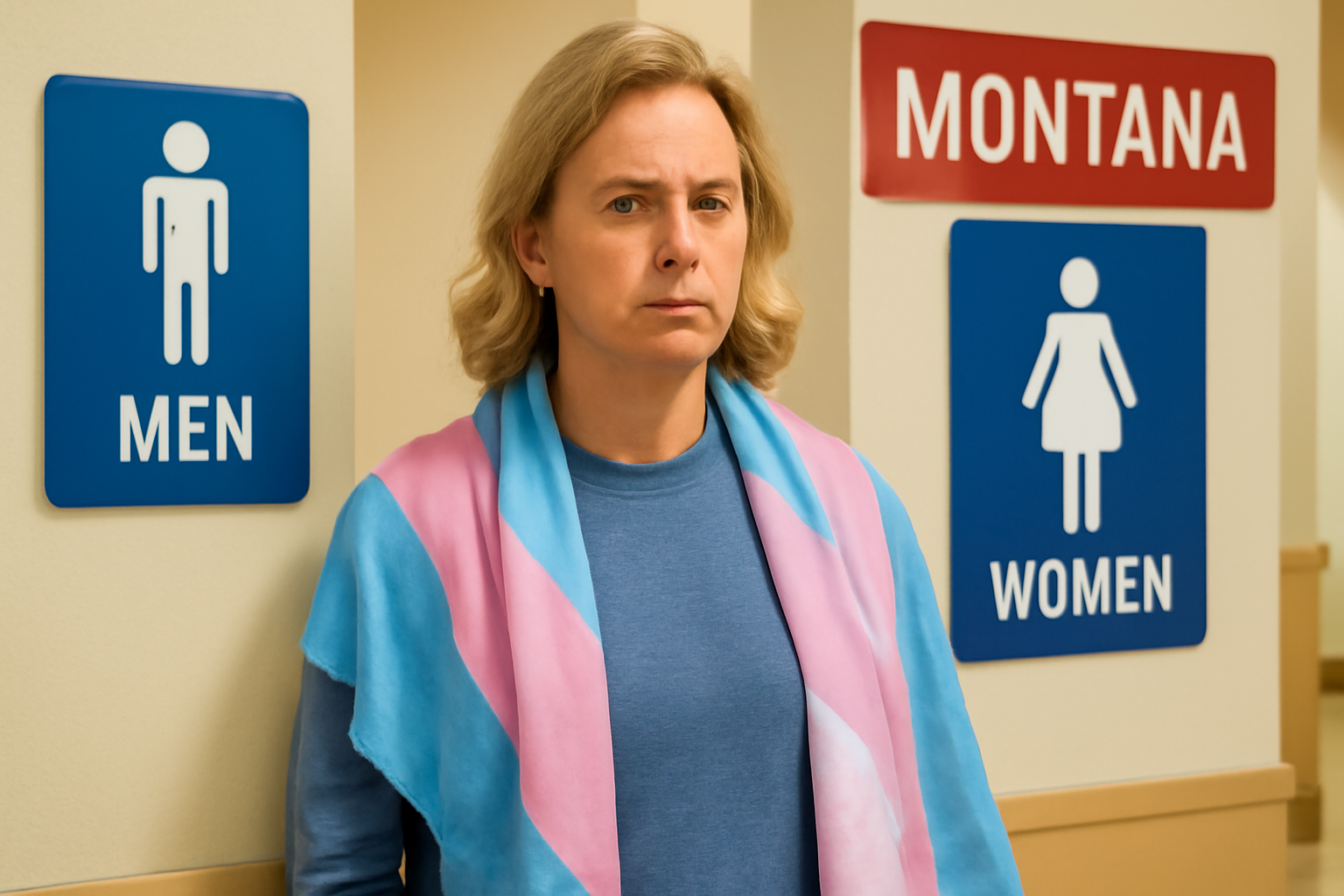
In a move that has sparked widespread concern among LGBTQ+ communities, Montana is poised to hold an anti-trans legislative meeting. The proposed legislation aims to impose restrictions on the use of gender-specific facilities, such as restrooms, by transgender individuals in publicly accessible government-owned buildings.
House Bill 121, introduced by Republican Kerri Seekins-Crowe, is at the center of this controversy. Seekins-Crowe's previously stated viewpoints on transgender issues have been highly contentious, underscoring the bill's divisive nature. The bill proposes that access to "multi-occupancy" spaces like bathrooms, changing rooms, and sleeping quarters in public buildings should be determined strictly by biological sex.
This legislative effort would encompass any "building owned or leased by a public agency... and that is open to the public". The list includes libraries, museums, schools, hospitals, universities, Montana’s state Capitol, and courthouses, effectively covering a wide range of public spaces where transgender individuals currently exercise their rights.
One of the most alarming aspects of this bill is the potential for legal action against transgender individuals. If passed, it would allow individuals to file lawsuits against transgender people for using facilities that align with their gender identity for up to two years after the incident. Exceptions to this rule include those performing custodial services, maintenance, medical assistance, law enforcement duties, or providing aid during emergencies like natural disasters.
This bill comes in the wake of a recent attempt by Montana Republicans to prevent transgender state representative Zooey Zephyr from using the women's restrooms in the Capitol building. Republican Jerry Schillinger proposed a policy that would have mandated lawmakers use facilities that corresponded with their sex assigned at birth. However, this measure failed to advance past the initial stages after a house committee vote.
Rep. Zooey Zephyr expressed relief at the failure of the proposed ban, thanking her colleagues—particularly those from across the aisle—for recognizing the issue as a distraction from their legislative duties. "I’m happy to see that this proposed ban failed and am grateful for my colleagues – particularly my Republican colleagues – who recognized this as a distraction from the work we were elected to do," Zephyr stated.
On a broader national scale, similar debates have unfolded. In a parallel incident, South Carolina Representative Nancy Mace successfully barred the first openly transgender congresswoman, Sarah McBride, from using the women's restroom in the US Capitol. Although Mace's resolution was not formally voted on, it took effect on November 20, corresponding with the Trans Day of Remembrance.
Sarah McBride publicly condemned the ban, labeling it as "a blatant attempt from right-wing extremists to distract from the fact that they have no real solutions to what Americans are facing." This sentiment echoes the frustrations of LGBTQ+ advocates who argue that such legislation only serves to marginalize transgender individuals further.
As the debate over House Bill 121 continues, its implications for transgender rights in Montana remain a pressing concern. The bill has yet to be enacted, but its potential impact on the rights and daily lives of transgender individuals in Montana cannot be overlooked.
We invite members of our community to share their thoughts. Engage in the discussion below, and please remember to keep the conversation respectful and constructive.
Related Posts
Triumphant Trans Woman Wins Legal Battle and Inspires Others to Stand Up for Their Rights
Breaking new ground: a landmark victory in transgender rights After battling in courtrooms and enduring endless challenges, Diana Portillo, a transgender woman, has secured a monumental victory in her decade-long fight against workplace discrimination. The result? Nearly $1 million awarded in a historic settlement. But this isn't just a win on paper—it represents a powerful precedent in combati [...]
Pride Month in Latin America: Protests and Demands for Equality
**Celebrating Pride and advocating LGBTQ+ rights in Latin America** Pride Month in Latin America was a lively mix where celebration met activism. Communities united, not just throwing a party but making a stand—demanding equality and pushing governments toward better protection and rights recognition. Throughout Latin America, pride events erupted in marches and cultural displays, each with a c [...]
Transgender Erasure Actions Implemented by National Park Service
```html Trump administration's impact on national park service and transgender recognition The Trump administration made notable moves in undermining transgender representation, which included directing agencies like National Park Service not include "T" and "Q" when they refered “LGBTQ” in any official communication. This move seems part a broader plan by this administration aimed at reducin [...]